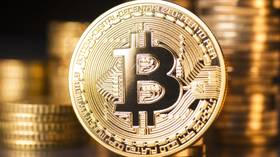
Liechtenstein won’t keep its savings in crypto yet, the prime minister has cautioned

A view of the Landtag (the government building) and the cathedral in Vaduz, the capital of Liechtenstein. © Volkmar Heinz/picture alliance via Getty Images
The government of Liechtenstein is considering accepting Bitcoin as payment for state services, the micro-state’s Prime Minister Daniel Risch told Handelsblatt on Sunday. Risch, who is also Liechtenstein’s finance minister, said that a “Bitcoin payment option is coming.”
The official didn’t specify what particular services will become available for payment in the digital currency, or when the announced payment method would become available.
Any crypto received will be immediately exchanged for Swiss francs, Liechtenstein’s national currency, Risch said.
Although crypto is too volatile to entrust portions of the country’s multi-billion-dollar annual savings, that assessment could change, he added. Bitcoin would not, however, be accorded the same legal status as the franc.
Liechtenstein is a German-speaking microstate located in the Alps between Austria and Switzerland. It is the world’s sixth smallest nation, with a population of under 39,000 people. In 2019, the principality became one of the first places in the world to pass dedicated crypto regulations with The Liechtenstein Blockchain Act.

Only two nations in the world have currently approved Bitcoin as legal tender – El Salvador and the Central African Republic. However, it was reported last month that the CAR has reversed this decision.
There are still no uniform international laws that regulate cryptocurrencies, which are notorious for their high volatility. The most popular crypto, Bitcoin, was worth a fraction of a cent when it was launched in 2009 and shot up to nearly $69,000 per coin in November 2021.
The rate has mostly been on a downward spiral since then, with the decline triggered by fraud allegations, government lawsuits and investigations, and general global economic instability. Bitcoin currently trades at nearly $28,000 per coin.
For more stories on economy & finance visit RT’s business section




